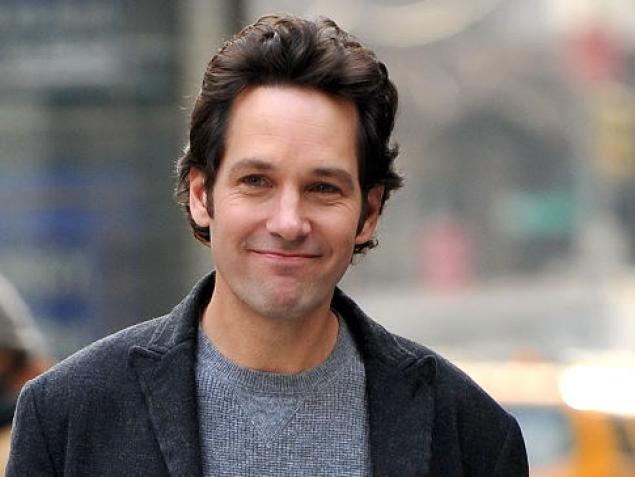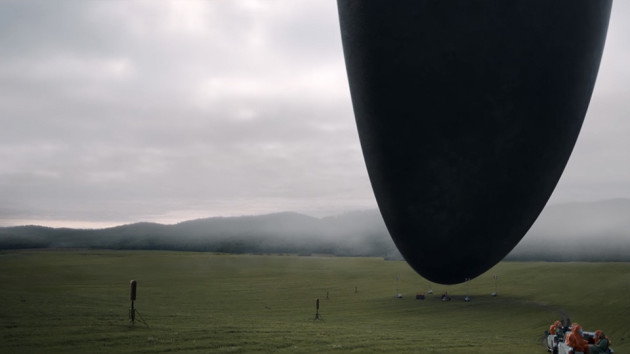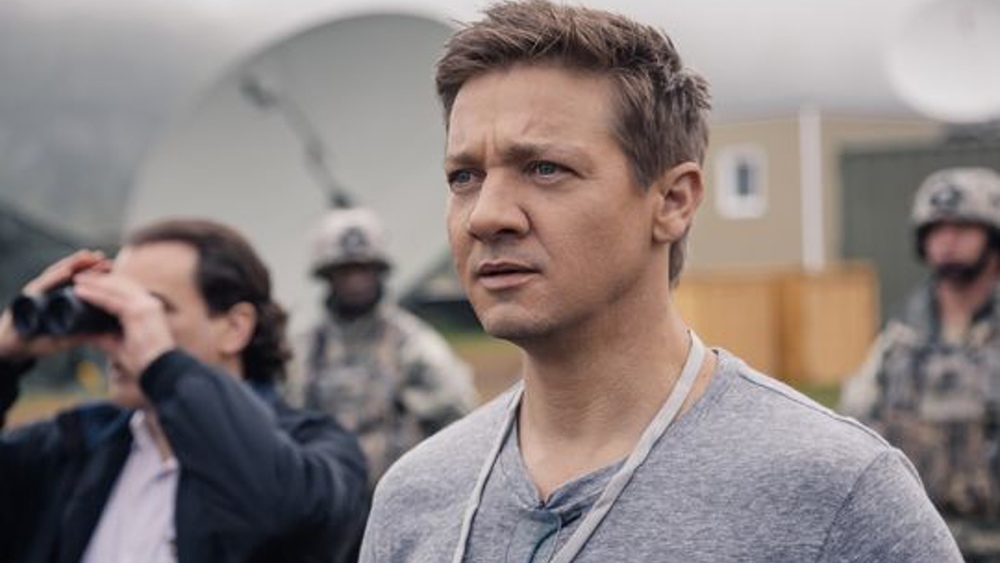1) The revelation: Holy shit. That movie I just saw sucked balls. Hollywood makes shitty movies. I can do a better job than these guys. I’m going to write a movie.
Reality: I guarantee you have no idea how to keep an audience’s attention for 2 minutes, much less 120. There is so much going on in even a bad movie on the script end to keep you interested, I don’t know where to begin. But I do know you have no idea how to do it. You’ll be lucky if your first efforts at screenwriting don’t result in the reader wanting to stab you by page 5.
2) My first script: What should my first screenplay be? My friends and I always talk about how “my life is basically a movie.” I’ll write a screenplay about my life!
Reality: Unless you survived the sinking of the Titanic, your life is boring. Trust me. People are out there getting shot by cops and you think because you woke up in some strange girl’s apartment at 4am, that that deserves to be turned into a movie? Your first script will have endless random scenes of you and your buddies hanging out and it will go nowhere.
3) I know better: Page count?? Why the fuck do I have to abide by a page count? Hollywood has such stupid rules. No wonder their movies suck. I’m going to write my drama about a 22 year old drug dealer taking on the Mexican mob and it’s going to need every one of those 170 pages.
Reality: Having a “break the rules” mentality isn’t a bad thing. But it’s deadly if you don’t know the rules in the first place. A lot of the rules are there for a reason. A tight page count, for example, is there to force you to make every scene matter, so you don’t write extraneous scenes that slow the narrative down. Rules are there to guide you into a more readable exciting script.
4) My first contest: This is strange. Whenever I show my screenplays to my friends, they’re always weird about it. They say stuff like, “Dude, that was hilarious. You’re totally going to make it,” even though I gave them a drama. You know what? They don’t understand movies anyway. I’m going to enter that big contest, the Nicholl, and win it so I can get into Hollywood that way.
Reality: Your script will not make it past the first round and you will use many popular screenwriting message board conspiracy theories as to why, such as “they didn’t read it” or “my script is too commercial for them.” Trust me, they read it. If your script doesn’t make it past the first round of the Nicholl, it means you still don’t understand the basics of the basics of screenwriting. All you have to do to advance to the second round at Nicholl is have a properly formatted screenplay, an un-ridiculous page count, an okay concept, and a reasonable understanding of the 3-act structure.
5) Maybe I should study: Maybe this screenwriting thing is harder than I thought. I’m going to read a few books and see if I’m missing something.
Reality: Admitting to yourself that screenwriting isn’t as easy as it looks and that you need help is a pivotal moment in your development as a screenwriter. It literally places you in the top 60% of people writing screenplays. If you have reached this moment, there is hope for you.
6) The over-reaction: What’s wrong! I included an inciting incident. My first act break was where it needed to be. My dialogue wasn’t on-the-nose. I wrote in a character with that fatal flaw thing. Why the hell isn’t my script selling?? I did it the way Hollywood books said to do it and I’m no better off than when I was doing it my way. I knew the Hollywood way was bullshit. Fuck this shit.
Reality: You’re applying the guidelines too overtly. The mechanics of what you’re doing are so transparent that your script feels generated from a script-bot. You will need to learn to apply the rules invisibly, which will take time and practice.
7) The over-reaction to the over-reaction: Since I’ve proven that the Hollywood way sucks, I’m going back to writing what I want to write about. I’m going to write that passion project that everybody says can’t sell because whenever I read an article about people breaking in, it’s cause they followed their heart and wrote what they wanted to write, not what Hollywood told them to write, like Matt and Ben with Good Will Hunting!
Reality: This script won’t do anything for you mainly because it won’t have a concept. This will discourage and confuse you. But what you don’t know is that your writing is improving. When people read this script, they’ll say something to the effect of, “It wasn’t bad,” which will piss you off because of how much you put into it. But what you don’t know is that this is a huge improvement over your previous works, where people hated your script more than a Trump sandwich. They just didn’t tell you because they didn’t want to hurt your feelings. Being able to write something “not bad” actually takes tons and tons and tons of practice.
8) All-In: I don’t know why I’m doing this screenwriting thing anymore because all it does is fill me with misery. But I want to figure it out. I’m going to read more screenwriting books, read more scripts, and not treat every script like a do-or-die scenario. I’m going to respect the rules but not hold myself to them if I believe my story can benefit from a different direction. I’m in this for the long-haul and now consider myself a student of the craft.
Reality: Congratulations. You’ve just become a screenwriter.
9) Careful consideration: I realize that writing a screenplay flippantly is probably a bad idea. I need to carefully consider whether each concept is marketable and has the relevant amount of plot, character, and conflict, to fill 110 pages. Each of my screenplays going forward will be more calculated, as will my writing preparation.
Reality: Holy shit. You’re actually giving yourself a shot at becoming professional!
10) The golden idea: I’ve found that idea I believe is both marketable and contains an emotional core. I’m going to meticulously outline as much of the story as I can. I’m going to have the ending mapped out before I write the beginning so that I know where I’m going. I’m going to explore every character on a deeper level. I’m going to let their conflicts drive the second act. I think this is going to be the one.
Reality: I don’t know if this will be the script that breaks you through or not. But I know this. If you keep writing screenplays like this, you WILL break in at some point. Good luck!
Mileage may vary.
Genre: Sports/Drama
Premise: An aging motorcycle racer decides that before he retires, he wants to race in the most dangerous motorcycle race on the planet, the mysterious “Isle of Man.”
About: Yesterday I was scrolling through Slash-Film and I came upon this bizarre news story of a motorcycle drama starring Matt Damon and Liam Neeson. That made zero sense. First, the “motorcycle drama” part. Hollywood doesn’t make motorcycle dramas. And two, the part about Damon and Neeson acting in the same movie. These two were as movie-starish as movie stars get. They don’t share credit. They are the credit. So I did some digging to figure out how this came together, and that’s when I saw the writer-director, Ben Younger, just came out with this Miles Teller boxing drama that’s been getting a lot of buzz – Bleed For This. When you got buzz, people want to be a part of your shit. This project appears to be a long-time passion for Younger. And I only say that because the script was scanned manually, which means it was written before screenplays went digital in 2007. There is no published date for this draft, though.
Writer: Ben Younger
Details: 154 pages (yikes!)
We haven’t seen a movie about motorcycle racing done on a large scale yet. And you’re always looking for that as a producer – that cool thing that nobody’s figured out how to turn into a film. But there’s a caveat when you find one of these magical missed ideas – what if the reason nobody’s made a movie about it is because the subject matter is stupid? Or boring? Or doesn’t translate to film? I mean, nobody’s made a large scale movie about polka before. Does that mean I should make an 80 million dollar polka movie?
But Younger may have stumbled upon something here. Racing is inherently exciting. Racing is what created one of the biggest franchises in Hollywood at the moment in The Fast and The Furious. And motorcycle racing is like the next level. Unlike car racing, where if you crash, you hop out and yell at your pit crew, a motorcycle driver is very likely to be yelling at God.
Then on top of that you have this mysterious weird race, the Isle of Man, which I’d never heard of before yesterday. Anything that makes your idea unique is a plus. Had this been, say, the motorcycle version of Days of Thunder, I would’ve rolled my eyes. But this bizarre race in the middle of nowhere where only the craziest of the crazy compete? That’s something I can get behind. Let’s see if the script lives up to the potential.
38 year-old Colin McMillan is one of those guys who can’t let the dream go. He’s been trying to break into the top tier of the AMA motorcycle racing circuit forever. But it’s always been out of reach.
And the thing with Colin is that he’s always got an excuse for why he hasn’t made it. If it isn’t the lower-tier motorcycle he’s forced to race with, it’s his day job that takes time away from practice, or the corrupt circuit that favors flashy new riders over highly skilled veterans.
Despite that, Colin finally decides to hang’em up. Before he settles into a life of boring monotony, however, he fulfills a lifelong dream to go see The Isle of Man race, a near mythological motorcycle race on a remote Irish island. The Isle of Man isn’t about flashy cool riders with sponsorships. It’s about crazy amateurs willing to risk their lives on one of the most unpredictable courses in the world.
Colin is on the island no less than two hours and he already knows – he needs to compete in this race before he dies. So Colin gets a job at a local farm, rents out a basement apartment for a few hundred bucks, and uses the next 11 months to train for the race.
Along the way he meets Kathleen, a nurse who’s none-too-fond of motorcycle racers, and Jon, the owner of the farm he works at, who was once a racer himself. He develops a relationship with both, along with everybody else on the island, all of whom’s lives are dictated by this quirky bizarre race known as Isle of Man.
Much like its subject matter, the Isle of Man script doesn’t go according to plan. Here I was ready for this cool-ass story about a retired bike rider who shows up at the Isle of Man and gets a last second bid in the race, and then miraculously wins it somehow, when I read this line: “I want to live here a year and train for the race.”
I’m sorry but wuhhhhhh…?
Yes, Isle of Man eschews the importance of urgency and sits you down with the characters on this island for a full 362 days before we get to our race. Not gonna lie. I was thrown by that. But once I accepted it, I realized it worked. By building up this race for an entire year, we give it the kind of importance it never would’ve achieved had we only known about it for 20 pages.
However, not every writer can pull this off. I’ve seen it go the other way where a writer takes his time and it’s a deadly decision. We’re bored as shit within 30 pages, wondering how we’re going to get through another 80 without ripping our hair out.
What helps in Isle of Man is Younger’s endless knowledge of the race. And when I say knowledge, I mean knowledge with a capital KNOW. This guy knows everything about Isle of Man. He knows everything about motorcycle racing. And I always say, when it’s clear that the writer knows more about the subject matter than you, you’re in good hands. It means they know how to tell a detailed realistic story as opposed to some fantasied assumption of how motorcycle racing works from someone who’s never done it before. Trust me, the reader ALWAYS KNOWS when you’ve never come close to the subject matter you’re writing about.
But it’s not just that. The characters are really strong too. Colin’s a little cliche (the aging rider who’s making one last go of it), but he grows as the script evolves. Younger’s good at being specific with his details and his backstory. Colin doesn’t have some advertising job he hates, for example, which is what 90% of Hollywood writers would’ve written in. He works at a children’s furniture store. I mean, how unique is that? And one of the critical scenes isn’t some cliched shout-off with an evil racing nemesis. It’s when Colin’s forced to help a cow give birth all by himself.
That’s not to say there aren’t tropes. We have the love interest who hates racing because her dad died in The Isle of Man. And yet, even these choices made sense. Everyone on this island lives this race. It’s what the island is known for so it makes sense that they’re all a part of it. For that reason, it isn’t far-fetched to believe her father would die in the race. That’s the thing about tropes. If they’re organic to the story, they can work. It’s when they feel like something a screenwriting teacher told you you have to include that they give you away.
What ultimately works about Isle of Man is that it’s a deep rich character piece wrapped around a motorcycle race as opposed to a motorcycle race wrapped around a group of tiny insignificant characters (known as “the Godzilla treatment”). No doubt that’s what Damon was attracted to. This isn’t a Tom Cruise “I’m a movie star” turn in Days of Thunder 2. It’s a story that allows the actor to embody a character in a unique setting building honest compelling relationships with other characters who have deep interesting backstories. You don’t get that often, which is why this project is finally going to get made.
[ ] What the hell did I just read?
[ ] wasn’t for me
[xx] worth the read
[ ] impressive
[ ] genius
What I learned: The biggest thing I took away from this script was the power of specificity. There wasn’t a single general detail here. From the bikes to the island to the characters on the island – everything here is unique and specific to the world. It’s what sets this apart from your average sports script.
Genre: Romantic Comedy
Premise: A married man on the verge of a mid-life crisis decides to have an affair which leads him to the age-old question: Is the grass really greener on the other side?
About: This script finished on the low end of the 2014 Black List. Abraham Higginbotham, the writer, is a well-known TV scribe, who’s written for Modern Family, Ugly Betty, and Arrested Development. He received his big break by writing a spec script for Will and Grace.
Writer: Abraham Higginbotham
Details: 123 pages
As I pondered life’s important questions this morning – Will my annual Thanksgiving trip to Portland end in rioting? What is a Supermoon and has Hollywood optioned the rights yet? Why doesn’t In and Out offer a chicken sandwich? And finally, why does “Supermoon and The Chicken Sandwich” sound like a movie that could make 200 million in its sleep? – I remembered that I hadn’t posted a review on the site yet.
So I broke open Everybody Wants Everything, a script that sounded funzilla, and despite its 120+ page run time, finished it quickly. The script met expectations. I liked it. However, one issue kept popping up as I read it: This feels more like a TV show than it does a movie. So I looked up Abraham Higginbotham and, lo and behold, it turns out he’s a well-known TV writer.
What does that mean, exactly? A script that feels more like a TV show than a movie? And how do you, young scribe, avoid making the same mistake? Stick around after the plot breakdown to find out!
40 year-old Theo works at one of those cringe-inducing men’s magazines where he’s starting to doubt every choice in life that has led him here. His love-life, however, is a different story. Theo’s met an amazing girl named Jesse, and the two are going on their first date tonight.
There’s that palpable first-date energy in the air when the two meet, and things seem to be going well until our storyteller (a disembodied narrator) backs up a few days and lets us in on some key info: Both Theo and Jesse are married to other people.
The two are hyper-aware that what they’re doing is wrong. But they’re consumed with the question that everyone in a marriage or relationship asks themselves at some point: Am I with the right person? Could someone outside of my relationship be my true soul mate?
What follows is Theo and Jesse mostly trying to avoid each other. But the more their partners’ faults shine through (Theo’s wife is a workaholic and Jesse’s husband refuses to get a job), the more they think about each other. And it wouldn’t be a movie if they didn’t give it a go. So go they do. To, um, uncertain consequences.
Like I said, I enjoyed Everybody Wants Everything. The dialogue is funny and a lot of the situations are funny (my personal favorite is Jesse’s harmless therapist who’s secretly in love with her always wanting to talk about her sex life) and, overall, it leaves you with that nice warm feeling you want to have when finishing a romantic comedy.
But while reading, it became clear to me why we don’t see these movies in the theater anymore.
The rule with feature writing has always been that you have to give the audience something they can’t get with television. Television is free. So if, like television, all you’re offering is a bunch of talking heads, you’re saying, “Come pay for something you can get for free!” People don’t sign up for that.
Especially since there’s 400 freaking television shows now. I can see everything I saw here by watching four episodes of “Casual” on Hulu. And the production value of television has only gotten better. Westworld looks like a movie. So does Walking Dead. So now, not even mid-range productions look like something you can only get in the theater.
This is why comic book movies have become so popular. You cannot get The Avengers on your television. The actors are too big. The effects are too big. The production value is too big.
Why do you think they send James Bond to 70 different countries nowadays? Because with shows like Alias and The Americans, not even a basic spy film is enough anymore. You have to show us something we can’t get anywhere else. So the Bond production pays to take you to the most exotic locations in the world.
So the answer to the question I posed earlier is: If all you’re giving us is talking heads, that’s not big enough for a movie theater anymore. A unique concept (Me Before You) will help. But it’s still a long shot (remember, Me Before You only got made because it was a best-selling novel). If talking heads is your game, I recommend you try and direct the movie yourself. That’s the one advantage of talking heads. They’re cheap to shoot. But to throw that script in Hollywood’s shark infested spec waters? Good luck.
With that said, I liked how Everybody Wants Everything played around with formula. We have a disembodied narrator casually commenting on the events of our two protagonists.
Oh, and the script is a good example of the power of withholding information. Remember that there’s no rule you have to tell your story in order. I liked how Higginbotham introduced us to these characters, put them on the date, then right in the middle of the date, backed up to tell us they were married to other people.
I realized that had I already known they were married, the story would’ve felt bland and predictable. Establishing that these were good kind people, and then, BAM, we find out they’re doing a bad thing. That was a powerful use of withholding information.
Everybody Wants Everything is also a good example of FRAMING a story. “Framing” is when you don’t have a traditional story engine with a goal (Find the Ark, Get off Mars, Kill the Terrorist) but instead, the story is more about the characters – in this case: will they end up together or not?
When you have this setup, you can risk it and hope that the audience only cares about that. But I’ve found that audiences like to know when things are going to end. They need something to FRAME the story for them. Or else they feel like they’re on a road trip with no destination.
So Higginbotham uses Theo’s brother’s wedding to FRAME the story. It’s a background storyline. It’s not important in the grand scheme of things. But it gives us a destination. We know we’re going to end up at that wedding in the final act, so we can relax and enjoy the characters in the meantime.
So, yeah. This script was fun and it does some interesting things. But it’s a hard sell to get into production unless they luck out and get a few huge name actors. We’ll see!
[ ] What the hell did I just read?
[ ] wasn’t for me
[x] worth the read
[ ] impressive
[ ] genius
What I learned: Everything we’ve talked about in this review is why finding a high concept is so important. It’s not just that you have to stand out in this business. You’re trying to convince producers that your idea is something that the average consumer doesn’t get by staying at home and watching television. A unique concept does that. Ultimately, you’re writing a movie that you’re trying to convince someone to block out 3-4 hours of their valuable time for to pay to see. Really think about that. There are hundreds of thousands of hours of free content online right now that you won’t even bother with. AND IT’S FREE AND DOESN’T REQUIRE YOU TO MOVE AN INCH! What is it about your idea that makes it “leave the house and pay for it worthy?”
Genre: Sci-fi
Premise: When a series of alien ships arrive on earth, it’s up to a linguist to learn their language and find out what they came here for.
About: This was one of those half-assignment/half-spec type deals. Eric Heisserer adapted Ted Chiang’s short story. The project was considered low-priority. But when it came together, everyone realized the film’s flashy premise provided them with an opportunity to draw in a bigger audience. Paramount became the primary suitor, eventually picking it up after a stellar preview at Cannes, and it came out this weekend to a higher than expected box office of 24 million bucks. For perspective, a Marvel movie will cost 4 times as much and land in twice as many theaters. So this is a huge coup for Arrival. One of the hottest directors on the planet, Denis Villeneuve, directs Amy Adams, Jeremey Renner, and Forest “Rouge One” Whitaker.
Writer: Eric Heisserer
Details: 1 hour and 55 minutes
Coming out of Arrival, I had the same reaction half the country did after the election…
“What the fuck just happened?”
Arrival is a testament to exploring a big idea on an intimate scale. It’s a script that should be lauded for its commitment to deeper introspective storytelling. But it’s also a cautionary tale for screenwriters – both in how the system forces your hand and how time travel mechanics are the biggest minefield in screenwriting.
Arrival follows Dr. Louise Banks, one of the top linguists in the world. Louise recently lost her daughter to cancer and therefore drifts though life, allowing her professorial duties at the local college to distract her as much as possible.
Her life is violently interrupted when twelve alien ships that look like giant tear drops arrive, hovering over twelve of the biggest countries in the world. Just as Louise is taking this in, an army colonel named Weber shows up and tells her her services are required. They need to communicate with the aliens, and she’s the only one they believe who can do it.
Louise is paired up with Ian Donnelly, a scientist, and the two join a small team that go into the alien ship every 18 hours to try and develop a common language with the aliens so that they can communicate.
The process is slow-going, and they’re repeatedly getting pressure from the higher-ups to speed it along. The big dogs believe that the other countries are making faster progress, and word on the bike path is that the aliens might be here to offer us a weapon. In some sort of twisted game, whichever country wins the language war, they will receive the weapon, and, if they so please, have the rest of earth at their mercy.
It’s a classic tale of of the tortoise and the hare, as Louise wants to learn the language from the ground up in hopes of a comprehensive dialogue, whereas the other countries are learning a few key words quickly so they get the message faster, even if that means error-prone communication.
Who will win? And what is the weapon the aliens have at their disposal? That’s the million dollar intergalactic question, baby.
Arrival is an example of the sign of the times. No, I’m not talking about how aliens relate to our political reality or any such nonsense. I’m talking about how in the original story, China plans to take over the world.
Oh no, but we can’t portray China in a negative light! Like, literally, we’re not able to. China is in the process of investing money in all seven studios with the stipulation that they cannot be portrayed negatively in any of the movies their money funds.
So what we’re seeing is scripts like Arrival have to be rewritten. And the results are anything but ideal. Instead of the Chinese being bad guys like in the earlier draft, the Chinese are now heroes, bravely defending the planet by threatening the aliens.
This sets a ticking time bomb up for the final act, as Louise and Ian hurry to learn the last bits of the alien language in the hope that they can prevent this attack.
At first glance, it’s a subtle shift. The Chinese no longer want to harm us. They want to harm the aliens. But in terms of stakes, it’s everything. Our characters and the United States are no longer under direct threat. No matter how you dress it up, there’s less stake in this scenario than a chicken sandwich.
Sure, there’s still “connect-the-dots” stakes. If China attacks the aliens, the aliens may attack earth, and everyone dies. But this scenario isn’t as clear, and the connect-the-dots nature of it makes it less scary than if China was threatening the U.S. directly.
So how do you deal with this as a working screenwriter? You can’t. There are things you have no control over. Studios are going to ask you to change things you don’t want to change all the time. And all you can do is do your best.
What sucks about Arrival is that it compounds this decrease in stakes with a risky story choice – adding time-travel.
[major spoilers below]
While I will never say “Don’t use time travel” in your screenplay, I will heed you this warning: Time travel is the hardest thing to get right in storytelling.
It goes back to Terminator. As a singular movie, that film worked because it was so simple. You didn’t have to think much. But once a second Terminator appeared in the second movie, it got everyone thinking: “Wait a minute. If they fail, why can’t they just keep sending Terminators back, one after another until they succeed?” That’s the pitfall of time travel. It opens up so many fucking, “Well wait a minute…” questions.
And Arrival is no exception.
The “weapon” that the aliens give Louise? Is the ability to see the universe like them – without the constraints of time. So Louise has the power to see forwards and backwards into her entire life.
Okay, now here’s where things get tricky, so stay with me. The daughter she lost to cancer? That hasn’t happened yet. What Louise is remembering in the early part of the movie is the future, not the past.
That daughter she had, she had with Ian (her co-worker). Which begs the question, where is Ian in all these future memories? It turns out he left when Louise informed him that their daughter would eventually contract cancer.
We then go back to the end of the aliens’ visit, where a troubled Louise asks Ian that if he could live a happy life despite knowing something terrible was coming, would he change it? He says no, he’d still live that life. And that’s the end.
Okay so, let’s get this straight here. Louise is having memories of her dead future child when we start the movie because the aliens gave her the power to see time forwards and backwards, which goes into effect retroactively, giving her that power to see the future, essentially, right when she’s born.
So then how come she didn’t know the aliens were coming???
Apparently this ability to see the future is selective.
Also, where is Ian in these future memories if he’s the father? Oh right, he left. Because when Louise told him that their daughter would eventually get cancer, he was so mad that he deserted the fam.
Let’s think about that for a moment, shall we? You leave the woman you love and the daughter you love because you’re mad your wife told you she’s going to get cancer. Does that make sense to you? Wouldn’t you stay and fight and go to every doctor on the planet to find preventative measures to stop the cancer, especially since you already know which cancer it’s going to be?
A little more digging however, tells us the real reason Ian isn’t there. If Ian was there, we’d have known the “flash-backs” were actually “flash-forwards.” They needed Ian out of the picture to execute the sleight-of-hand. Hence the artificial reasoning for him leaving.
All of this is an elaborate way of saying: If you’re going to fuck with time travel, be prepared to take it on the chin. The more embedded time travel is in your plot, the more plot holes you’re going to have. Period. If you’re okay with that, go for it. But I promise you, they’ll be there.
Despite this frustrating issue, I still liked Arrival. I loved the realistic approach it took to the arrival. I loved the unique manner in which contact was explored (with language). On a filmmaking note, I thought the score was amazing. And I thought Villeneuve shot the movie in a mesmerizing manner.
There’s this flying tracking shot early on, where we helicopter into the base outside the ship, and we’re floating down and around the make-shift barracks, and the score is booming and the clouds are sliding off the nearby mountains and this majestic ship is silhouetted by the sun — that shot fucking sold me. The aliens could’ve communicated in farts and burps at that point and I still would’ve bought in.
So warts and all, this was quite the movie-going experience. Not to mention it’s a great discussion piece for screenwriters and filmmakers alike.
[ ] What the hell did I just watch?
[ ] wasn’t for me
[x] worth the price of admission
[ ] impressive
[ ] genius
What I learned: There is such a thing as too much subtlety, you know. Writers and directors who prefer subtlety are terrified of coming off too “on-the-nose.” In principle, I agree that on-the-nose is bad. But if you go to the other extreme, where you don’t give us anything, there’s a chance we might not catch what you’re trying to say. This love story between Louise and Ian is dealt with so subtlely, we don’t even know it’s happening. There’s no kissing, no touching, no compliments, no looks, not even a hint that they like each other. So when they get together at the end, it comes out of left field. It’s fine to be subtle. But you still have to give the audience SOMETHING to let them know what’s going on. Every payoff in your story must be set up on some level.
THE WINNER HAS BEEN ANNOUNCED BELOW
If you’re new to the Scriptshadow Tournament, here’s what’s happened so far. The first round went for 8 weeks, with you, the readers of the site, voting for the best script on each of those weeks. Those 8 winning scripts are now competing in the Quarterfinals. To spruce things up, we’ve added a wild-card entry to each Quarterfinal week. Wild-Cards were scripts that garnered a lot of votes on their respective week but fell short in the end. The best of those near-misses have been voted into the Quarterfinal round.
As a reminder, here’s how this works. Read as much of the three scripts as you can then vote in the comments section which script you think deserves to go into the semifinals. The voting will be done via an electoral process. Which means that different states and countries will account more heavily than other states and countries. I’m kidding by the way. With that said, please explain why you voted for the script that you did so that we know you’re a real voter and not a friend of the writer. All of this week’s entries have been rewritten since the last time you saw them, so I’ll leave it up to the writers if they want to summarize their changes in the comments section.
Voting closes at 10pm Pacific Time Sunday evening.
Good luck to all!
#2 SEED
Title: Raised By Wolves
Writer: Paul Clarke
Genre: Action/Thriller
Logline: Raised in seclusion, a curious but naive teenage secret-agent discovers a sinister side to her work and must escape her handlers and flee into the world she fears to discover the truth.
#7 SEED
Title: Dionaea
Writer: Brian Kazmarck
Genre: Sci-fi/thriller/horror/action
Logline: As their ship is rapidly overrun by a malevolent alien intelligence determined to assimilate the entire crew, a biologist discovers a much darker secret she must expose to the world before they all die.
WILD-CARD
Title: Odysseus and His Boy
Genre: Period
Logline: With only one night to act, two rival soldiers must sneak behind enemy lines to complete a last-ditch suicide mission that will finally put an end to a decade-long conflict.
Writer: Steffan DelPiano
WINNER OF QUARTERFINAL WEEK 1: “Odysseus and His Boy” by Steffan DelPiano. It’s Week 1 of the quarterfinals and we already have our first upset, with Wild-Card entry “Odysseus and His Boy” dominating the competition. Congratulations, Steffan. You’re in the semi-finals! I’ll be alerting this Friday’s entrants later today. Also want to congratulate Brian and Paul for a strong showing. Don’t get down on yourselves. The short script competition is right around the corner!








